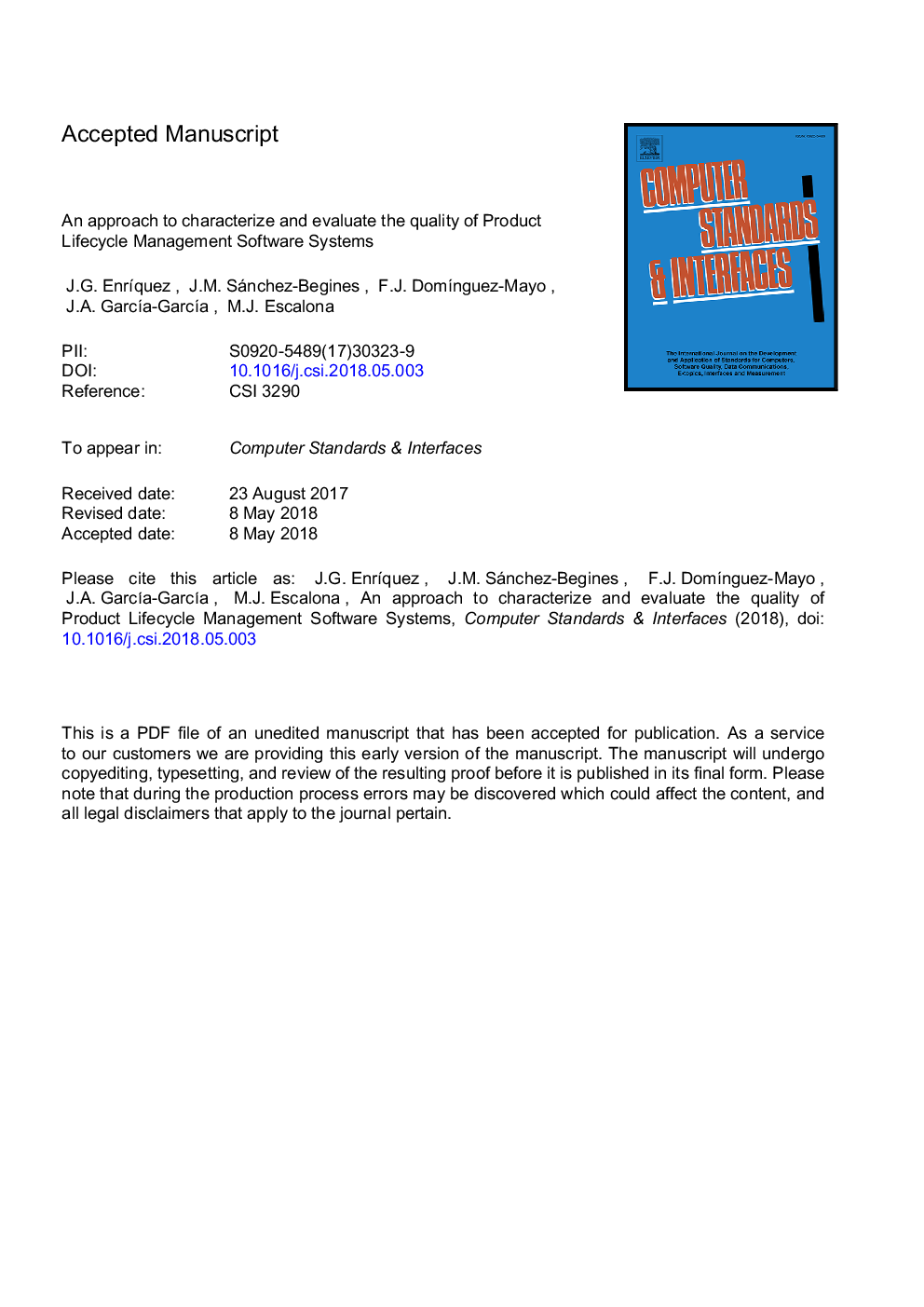| Article ID | Journal | Published Year | Pages | File Type |
|---|---|---|---|---|
| 9951450 | Computer Standards & Interfaces | 2019 | 29 Pages |
Abstract
PLM (Product Lifecycle Management) is an information management system that can integrate data, processes, business systems and staff in a company, in general. PLM allows managing efficiently and economically the information that all these elements generate from the initial idea to design, manufacture, maintenance and elimination phases of the product lifecycle. PLM has to include processes and tools to assure the quality of the final products. This way, it is difficult for PLM experts (from aeronautical or automation organizations, among others) to find an environment that suggests which is the best PLM solution that copes with their necessities. A number of PLM solutions are available for this purpose, but experts require a suitable mechanism to select the most appropriate one for the specific context of each organization. For this purpose, this paper presents a quality model, based on QuEF (Quality Evaluation Framework), that aims at helping organizations choose the most useful PLM solution for their particular environments. This model supports both static and dynamic aspects that may be customized for any kind of organization and taken as reference model. Particularly, our approach has been validated in the context of large enterprises in the aeronautical industry within a real R&D project carried out between our research group and Airbus.
Related Topics
Physical Sciences and Engineering
Computer Science
Computer Networks and Communications
Authors
J.G. EnrÃquez, J.M. Sánchez-Begines, F.J. DomÃnguez-Mayo, J.A. GarcÃa-GarcÃa, M.J. Escalona,
